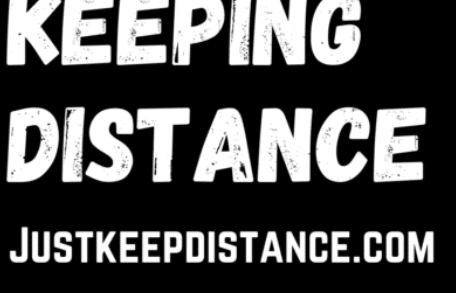Your cart is currently empty!

Linktree vs. Personal Domain: Comparison?
About and What is Linktree?
Linktree has risen in popularity since its establishment in 2016. The idea behind the website was to ease communication between Instagram users. According to co-founder Alex Zaccaria, constantly changing Instagram bio links had become tiring for Zaccaria and his team of artist managers. Other users shared similar sentiments. For starters, sharing links separately limited brand reach. Moreover, writing “link in bio” on every post and story was annoying. Linktree lets users push several links at a time, combining social profiles and external URLs in an easy-to-follow menu.
Advantages of Linktree
Artists and record labels love this platform for the following reasons.
Spring
Spring allows you to open mini storefronts for in-app purchases. This way, users can view your merchandise shop while still on your profile. Spring supports up to six listings on Linktree profiles. Your followers can then see other listings on Linktree, lingering over items to know product names and local pricing. Shops with six products and above appear as carousels while those with five items and below appear as grids.
Free Subscription
Linktree’s free version brands landing pages by displaying logos discretely at the bottom. Additionally, you get limited statistics like the number of page visitors and total clicks on individual links. You could also get the pro version for features like scheduled links.
Music Sharing
Rather than linking to one music hosting platform, the Music Links feature presents fans with several streaming options depending on their county of residence. You can also list the links according to their popularity for convenient streaming and sharing.
Priority Links
This pro feature attracts users to a particular link through animations. You can use Priority Links to increase sales, streams, video views, and website clicks.
Commerce Links
This feature lets you accept payments on your Linktree account without opening another browser or tab. You can integrate it with your payment provider and process any kind of transaction. For instance, you can sell tickets or ask for tips from fans to support your music. You can even add banners to support charities.
Supports Different Social Icons
Linktree doesn’t limit you to Instagram; the Social Links capability supports YouTube, Twitter, Facebook, even email icons.
Linktree Problems
Linktree isn’t perfect. Here are some problems to expect on the site.
Limited Free Features
You cannot remove Linktree’s logo on the free version. This goes together with the limited themes and analytics. The site may display your total clicks, but you don’t know which links are performing well on the free version. Although the pro subscription offers font selection and more color schemes, the options are fewer than owning a domain. Again, your bio links back to Linktree instead of your personal link. This means you’re promoting Linktree for free.
Instagram May Flag Your Links
It’s not uncommon for Instagram to ban Linktree links without notice. For example, the social platform declared Linktree in violation of community standards in July 2018. Banned links affect artists in several ways. The first one is stalling your marketing campaigns. It’s harder to promote your brand, merchandise, and events with spam links.
Your Brand Suffers
Your fans have less trust for your brand when you have damaged Instagram links. Even if the link is working, visitors still see the Linktree logo on your profile. With the limited color options, connecting with your fans through a customized brand can be challenging.
Lower Search Ranking
Every click on your Instagram bio link is an opportunity to boost SEO. However, Linktree benefits from this traffic instead of your website.
Own Personal Domain
Though you can still build an online presence with free platforms, here’s how a personal domain benefits your musical career.
You Look Professional
A website markets you as talented and dependable. It shows you take your craft seriously and are willing to invest in your music. Clients also check your website to gauge your credibility. You can land more gigs by posting recent releases and your best-selling tracks. Remember to leave your contact details for queries and bookings. Again, design a mobile-friendly site to enhance access by all devices.
Customize Your Site
Personalization sets your brand apart from other artists in the industry. Customers are more loyal to your brand when you offer something no one else does. The first step of customizing your website is picking a header image. Apart from being high-resolution, the picture should appear in landscape mode, leaving enough space around the edges for taglines and call to action. Your menu layout also matters. You can limit your pages to 5-8 for a simple look. If you intend to post your entire music catalog, get a template with a straightforward content area.
Social Platforms Don’t Last Forever
Music-sharing sites won’t always be popular. Apart from going out of business, the site can deactivate your account. But that isn’t the case for personal domains. Unlike music-sharing sites that take some of your income, you keep all the earnings from your website. What’s more, you can direct anyone to your website. Unlike most social platforms, visitors don’t have to open an account to view your content.
Direct Communication with Fans
You can request fans to join your mailing list to follow your events, music releases, and merchandise. Apart from advertising products, you could also reach out to your fans on special occasions. The first way to grow your mailing list is through call-to-action icons. Visitors are more likely to click on the button if it appears at the top of the webpage. Nobody wants to scroll through your website to find your mailing link. Similarly, you can ask your social media followers to join the list to stay ahead of exclusive releases.
SEO Ranking
SEO drives traffic to your site even without other marketing efforts. Start by listing your SEO goals. Know who you want to reach through SEO and why you want that fan base. The next step is finding target keywords. Search Ranking is easier if your stage name is unique. However, you can target other keywords if your name matches other common terms. Don’t overlook quality content. Your content should be detailed and interesting. That includes your bio, images, and video titles. Backlinks also improve SEO by showing search engines that your site is credible. You can gain backlinks by guest posting to other music sites and requesting mentions from influencers and other musicians.
One-Stop-Shop
Personal domains give fans an overview of your activities. For starters, you can link your social media profiles and post a brief history of your career. You can also make money through music sales and virtual performances. Another option is merchandise sales. You can sell branded t-shirts, mugs, caps, and hoodies. Fans will also appreciate physical music copies like CDs, cassette tapes, and vinyl. Don’t shy away from asking fans for donations. You can use the money to market your tracks and support music production.
Our Verdict
Linktree may offer customization options, but you’re not in full control of the site. Although you need cash to launch your website, you recover your investment over time. Moreover, fans appreciate a personal touch to their favorite artists. You can address frequently asked questions, post testimonials, and connect with fans through get to know me videos. Besides spreading your reach, the website provides valuable lessons on online marketing.
